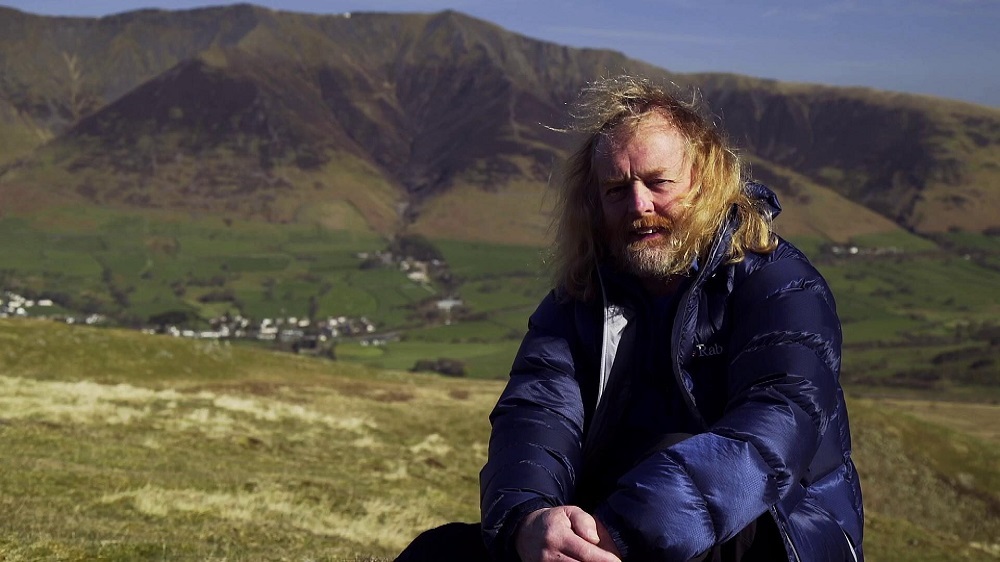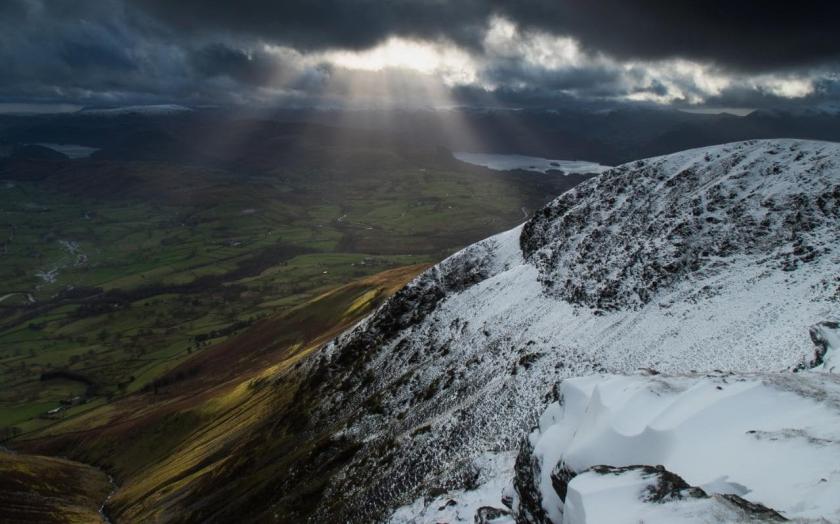Two years ago BBC Four had a film about a year in the life of Scafell Pike. Arriving at glacial pace is the sequel: Life of a Mountain: A Year on Blencathra. The star this time round is more of a best supporting character actor than a headline performer. It’s only the 18th highest of England’s peaks. As one photographer explained, you can’t get a decent shot of all of its five-felled south-facing expanse. For a long time it even had the wrong name imposed on it: Saddleback, on account of the dipping ridge between its peaks. Alfred Wainwright, who still has the final word on these things in Cumbria, called it the mountaineer’s mountain.
Not that this film contained any bona fide mountaineering. Instead it met with fell runners, path-menders, sheep farmers, student ecologists, snowboarders and, at the top, ramblers from everywhere. It’s mainly the visitors who go up. Eighty percent of locals, reckoned Donald Angus of Threlkeld, aged 77, haven’t bothered. “You’re a bit funny in the head if you live here and go up.” We met a French woman called Marie-Pierre who runs the highest youth hostel in England at Skiddaw. A friend forced her up after eight years.
The local guides tell a different story. Alan Hinkes, whose OBE was much insisted upon in his caption label, had the Sharp Ridge all to himself one snowy winter day. This craggy ascent is so called because it offers sheer drops to left and right (though doesn’t look as quite as perilous as Crib Goch on Snowdon). David Powell-Thompson (pictured below), another guide, randomly escorted professional northerner Stuart Maconie and Irish stand-up Ed Byrne up one blustery Sunday. Maconie moaned quite a lot.
 Terry Abraham’s film was exceptionally easy on the eye. Montages of mountainscape, some of it caught by dronecam, wowed one’s retinas. Clouds flooded the valley beds, ridge prows retreated in a beautiful recession of tones, a cluster of fell-runners cast shadows like sheep, the sun set all Halloween orange. Poet Philip Houghton, bemoaning the Lake District's over-reliance on Wordsworth’s daffodils, recited his own butch homage to the mountain: “cloud ratcher, mist splitter, snow etcher, anvil to winter’s hammer blows”.
Terry Abraham’s film was exceptionally easy on the eye. Montages of mountainscape, some of it caught by dronecam, wowed one’s retinas. Clouds flooded the valley beds, ridge prows retreated in a beautiful recession of tones, a cluster of fell-runners cast shadows like sheep, the sun set all Halloween orange. Poet Philip Houghton, bemoaning the Lake District's over-reliance on Wordsworth’s daffodils, recited his own butch homage to the mountain: “cloud ratcher, mist splitter, snow etcher, anvil to winter’s hammer blows”.
The visual interludes felt even a little too plentiful, interludes in what was primarily a film about people’s relationship with indifferent nature. “It’s a really nice mountain,” said a boy at Threlkeld Primary School. There was much evidence to contradict him. While Marie-Pierre is happy with her partner and the radio and no mains electricity, solitude isn't everyone's cup of tea. Another section visited a hill farm which has been in one family for over 100 years. “We farm tourists now as well as sheep,” said Sarah Chaplin-Brice, who seems to live alone with her son Will. Loneliness is a problem which the film didn’t have the heart to go into. Last winter’s devastating floods destroyed their business and their problems multiplied. “It’s like a bereavement,” said Sarah.
Somewhere between an almanac and a palimpsest, the structure-light film didn’t really deploy a presenter. David Powell-Thompson introduced the mountain. Later Eric Robson did a piece to camera about the myths and legends attached to it, featuring everlasting fish and a spectral army and Arthur’s round table – hence the name, meaning Arthur’s seat. In a nice audio coup, the soundtrack with a yearning violin credited to Freddiehangoler/Soundgem Studios was sung a capella by a local choir called Sing Owt. Better head up it soon. After this enchanting postcard, England's 18th highest peak is not going to be its 18th most crowded.
(In the interests of balance, BBC Four's topographical tour next week is South Downs: England's Mountains Green. You won't need crampons for that.)















Add comment